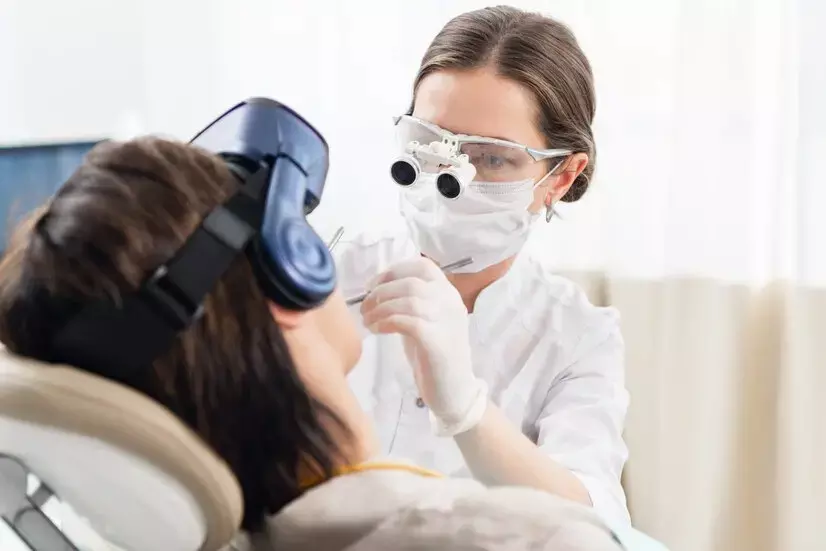- Home
- Medical news & Guidelines
- Anesthesiology
- Cardiology and CTVS
- Critical Care
- Dentistry
- Dermatology
- Diabetes and Endocrinology
- ENT
- Gastroenterology
- Medicine
- Nephrology
- Neurology
- Obstretics-Gynaecology
- Oncology
- Ophthalmology
- Orthopaedics
- Pediatrics-Neonatology
- Psychiatry
- Pulmonology
- Radiology
- Surgery
- Urology
- Laboratory Medicine
- Diet
- Nursing
- Paramedical
- Physiotherapy
- Health news
- Fact Check
- Bone Health Fact Check
- Brain Health Fact Check
- Cancer Related Fact Check
- Child Care Fact Check
- Dental and oral health fact check
- Diabetes and metabolic health fact check
- Diet and Nutrition Fact Check
- Eye and ENT Care Fact Check
- Fitness fact check
- Gut health fact check
- Heart health fact check
- Kidney health fact check
- Medical education fact check
- Men's health fact check
- Respiratory fact check
- Skin and hair care fact check
- Vaccine and Immunization fact check
- Women's health fact check
- AYUSH
- State News
- Andaman and Nicobar Islands
- Andhra Pradesh
- Arunachal Pradesh
- Assam
- Bihar
- Chandigarh
- Chattisgarh
- Dadra and Nagar Haveli
- Daman and Diu
- Delhi
- Goa
- Gujarat
- Haryana
- Himachal Pradesh
- Jammu & Kashmir
- Jharkhand
- Karnataka
- Kerala
- Ladakh
- Lakshadweep
- Madhya Pradesh
- Maharashtra
- Manipur
- Meghalaya
- Mizoram
- Nagaland
- Odisha
- Puducherry
- Punjab
- Rajasthan
- Sikkim
- Tamil Nadu
- Telangana
- Tripura
- Uttar Pradesh
- Uttrakhand
- West Bengal
- Medical Education
- Industry
Virtual reality can be used in dental clinics to reduce stress and anxiety in adult patients during treatment, states study

Virtual reality can be used in dental clinics to reduce stress and anxiety in adult patients during treatment, states study published in the journal of clinical medicine.
Dental fear and anxiety are prevalent issues in both children and adult patients, often leading to avoidance of dental care and deterioration in overall health. While virtual reality (VR) has been increasingly studied as a distraction tool in pediatric dentistry, its effectiveness among adults remains under-researched.
This study aims to evaluate the impact of VR distraction on reducing anxiety and physiological stress indicators in adult dental patients. Methods: The study was conducted in a private dental office in Dobrodzień, Poland, involving 90 adult dental patients divided into three groups: two experimental (VR1 and VR2) and one control (C), with 30 patients each. Patients in the VR1 group experienced VR distraction during the first visit, and the second visit was conventional; the VR2 group experienced this in reverse; and the control group underwent traditional treatment in both visits.
Physiological parameters (heart rate, saturation, and stress) and psychological anxiety levels (MDAS and STAI-X1) were measured at three time points during each visit. Results: Significant reductions in heart rate and stress levels were observed after VR exposure compared to the control group. VR also demonstrated a significant effect in decreasing anxiety levels (based on STAI-X1) during the visit with VR distraction. No significant changes were found in the saturation levels across the groups.
Conclusions:The use of VR as a distraction tool during dental procedures effectively reduces physiological stress and anxiety in adult patients, suggesting its potential as a valuable tool in managing dental anxiety. Further research is recommended to explore the long-term benefits and patient satisfaction with VR-based interventions in dental care.
Reference:
Ledwoń, A.; Dębski, P.; Jędrusik, P.; Mielcarska, S.; Misiolek, H.; Meisner, M.; Łopacińska, M.; Skucha-Nowak, M. An Attempt to Use Virtual Reality as a Tool to Reduce Patient Anxiety During Dental Treatment. J. Clin. Med. 2024, 13, 6832. https://doi.org/10.3390/jcm13226832
Dr. Shravani Dali has completed her BDS from Pravara institute of medical sciences, loni. Following which she extensively worked in the healthcare sector for 2+ years. She has been actively involved in writing blogs in field of health and wellness. Currently she is pursuing her Masters of public health-health administration from Tata institute of social sciences. She can be contacted at editorial@medicaldialogues.in.
Dr Kamal Kant Kohli-MBBS, DTCD- a chest specialist with more than 30 years of practice and a flair for writing clinical articles, Dr Kamal Kant Kohli joined Medical Dialogues as a Chief Editor of Medical News. Besides writing articles, as an editor, he proofreads and verifies all the medical content published on Medical Dialogues including those coming from journals, studies,medical conferences,guidelines etc. Email: drkohli@medicaldialogues.in. Contact no. 011-43720751


